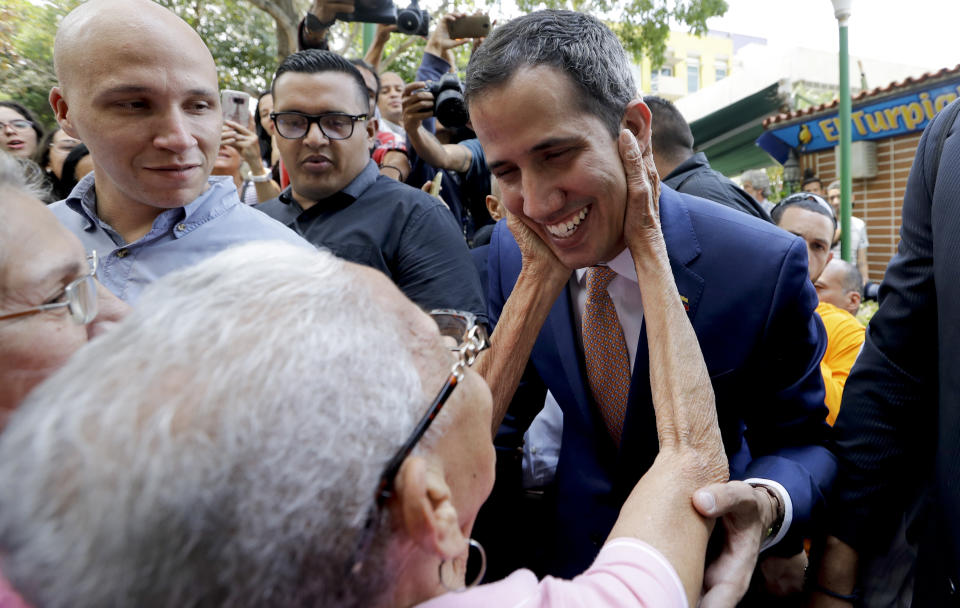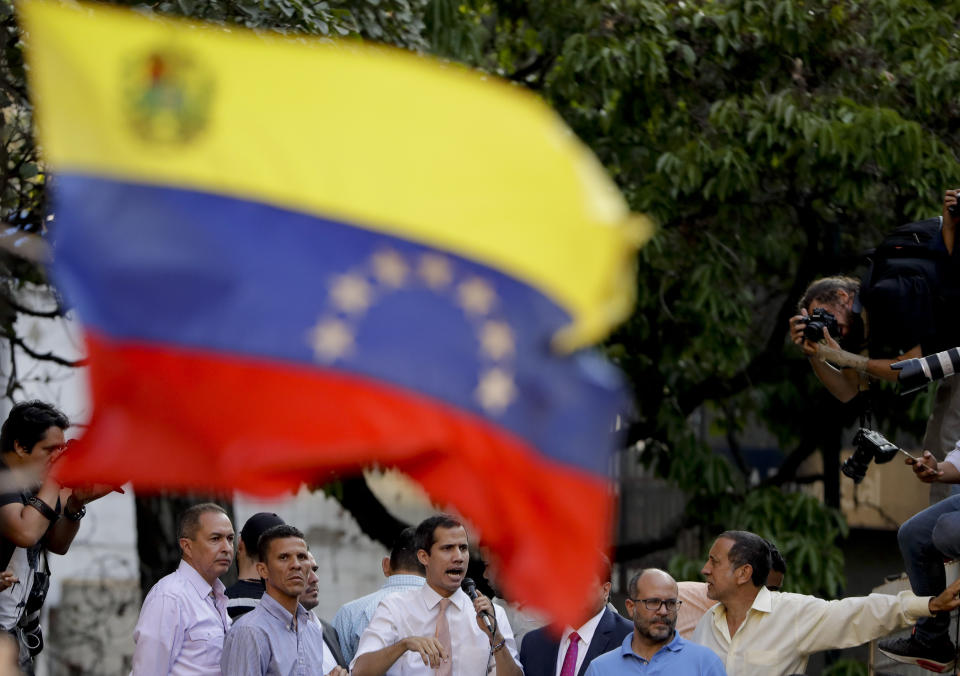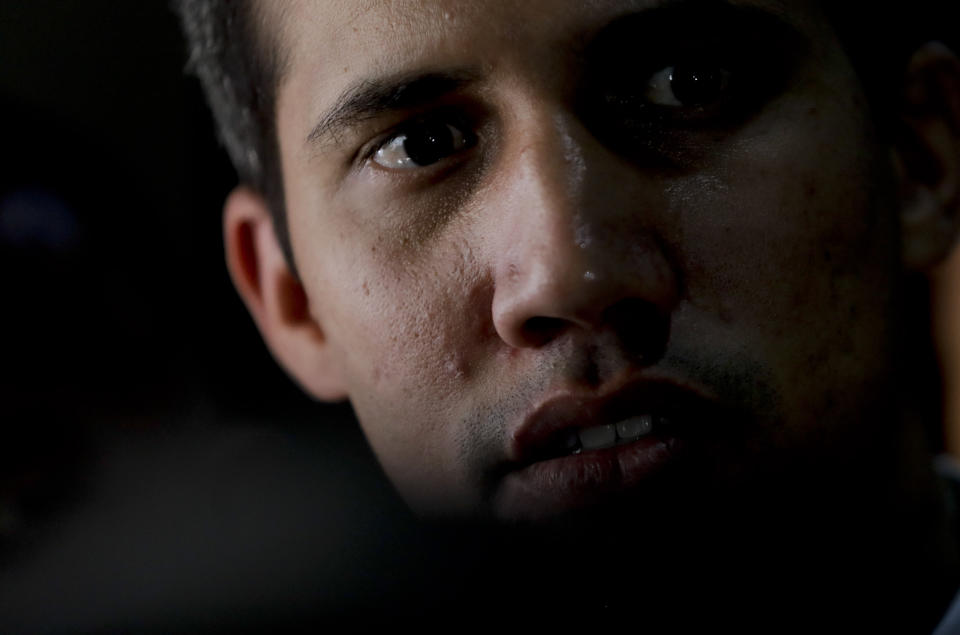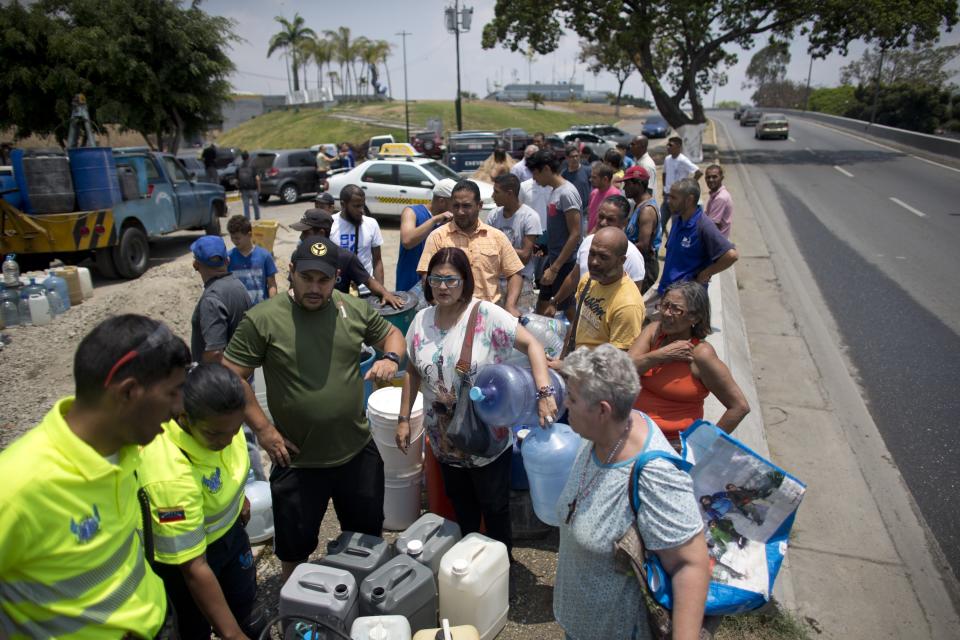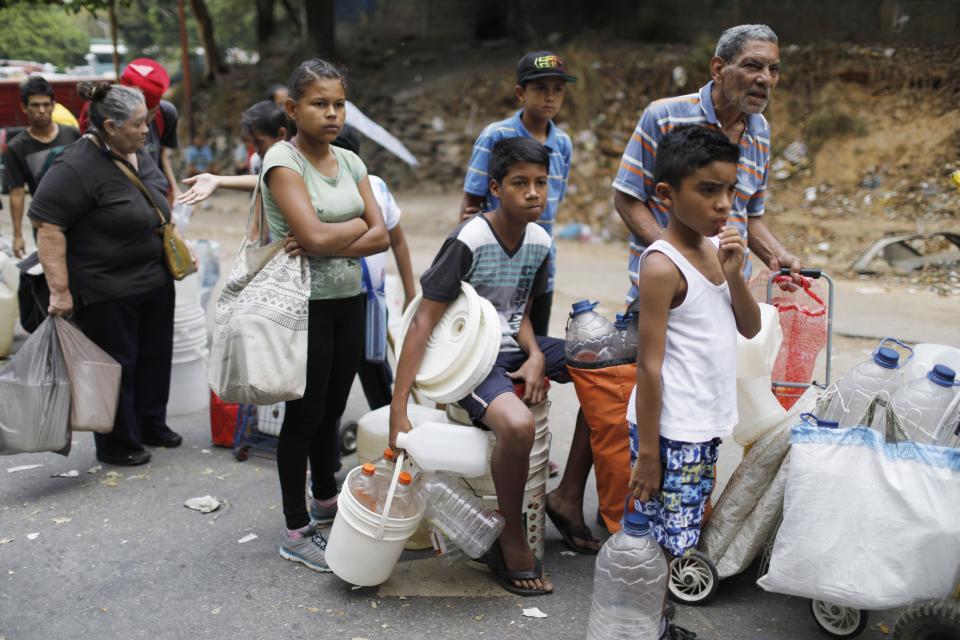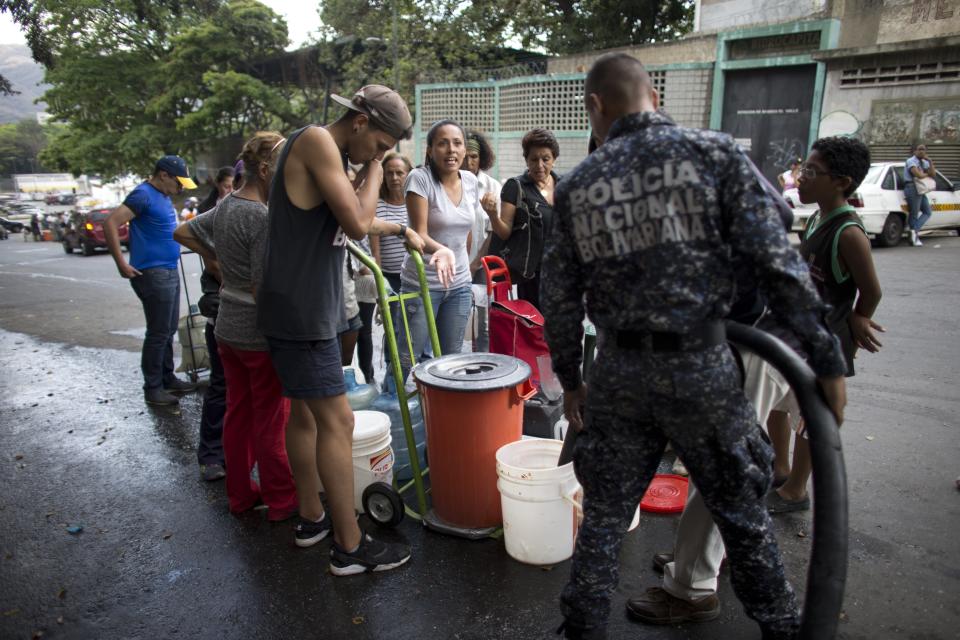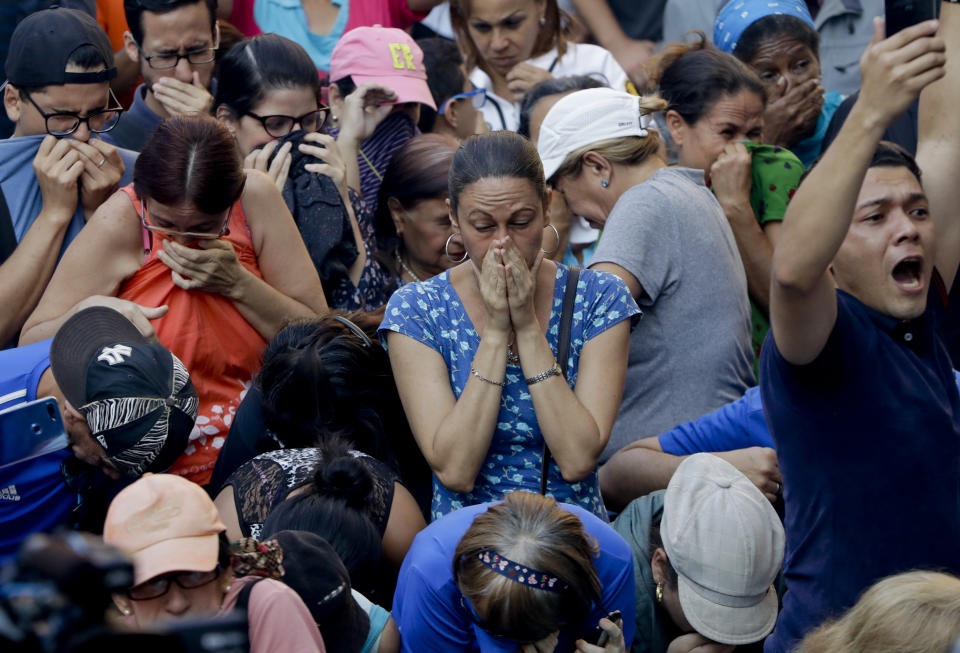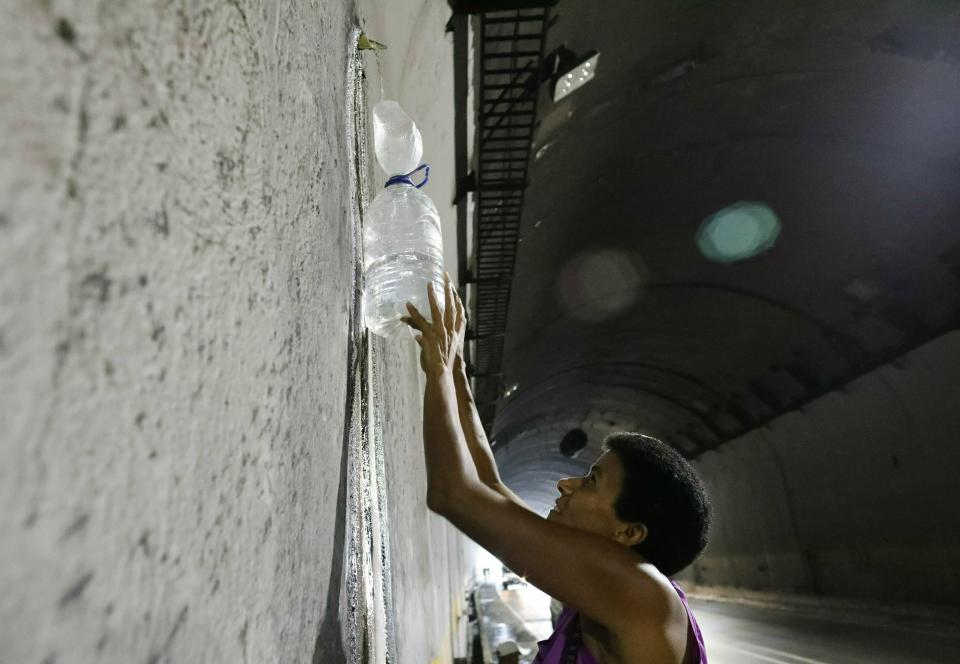Venezuelan judge moves to strip opposition leader's immunity
CARACAS, Venezuela (AP) — Venezuela's chief justice on Monday asked lawmakers to strip opposition leader Juan Guaido of immunity, taking a step toward prosecuting him for alleged crimes as he seeks to oust President Nicolas Maduro.
Supreme Court Justice Maikel Moreno said Guaido should be prosecuted for violating a ban on leaving the country when he went on a tour of Latin American nations that back a change in Venezuela's government. The opposition leader is also accused of inciting violence linked to street protests and receiving illicit funds from abroad.
It's unclear when the pro-Maduro National Constituent Assembly will consider whether to remove Guaido's immunity from prosecution as head of the National Assembly.
Guaido dismissed the Maduro-stacked high court and Constituent Assembly as illegitimate and continued his calls for Maduro to step down.
"We must unite now more than ever," said Guaido at a Caracas university earlier Monday. "We must mount the biggest demonstration so far to reject what's happening."
Venezuelan security forces have detained Guaido's chief of staff, but had yet to move directly against the opposition leader, whose claim to be interim president is backed by dozens of countries that say Maduro's re-election last year was rigged.
Since a massive power failure struck March 7, the nation has experienced near-daily blackouts and a breakdown in critical services such as running water and public transportation. Classes have been suspended for nearly a week.
At the same time, frustrated residents are increasingly unable to find water, make phone calls or access the internet. Millions of Venezuelans struggle to understand an announcement by Maduro a day earlier that the nation's electricity is being rationed to combat daily blackouts.
Maduro said late Sunday that he was instituting a 30-day plan that would balance generation and transmission with consumption. He also called on Venezuelans to stay calm, but provided few details.
Maduro appeared on state TV Monday to announce that an engineer with 25 years of experience, Igor Gaviria, will serve as the next electricity minister, heading the state-run Corpoelec. He's replacing a military general, Luis Motta Dominguez.
"I've lost him to a period of rest," Maduro said, adding that students will return to class Wednesday.
Expressing her confusion, office worker Raquel Mayorca said she didn't know if her lights were off because of another power failure — or whether it was part of the government's plan.
"We are worse off now more than ever," she said, adding that the power was out on one side of the street, but working on the other. "We do not know if the light went out due to a blackout, or whether they took it away because of the rationing."
Maduro blames the blackouts on U.S.-directed sabotage, an allegation that Guaido routinely dismisses as the desperate talk of a government that has presided over the collapse of infrastructure in a country which was once among the wealthiest in Latin America.
As the lack of electricity became the latest sticking point in an ongoing political standoff, many Venezuelans simply found themselves wondering what the newly announced rationing plan would entail.
With few details, it was difficult to assess how effective the plan would be in restoring a consistent supply of power in the long term. Some electricity experts have also said there are no quick fixes to Venezuela's fragile power grid, presenting the prospect that electricity could be shaky and unreliable for the foreseeable future.
On Sunday, a mass of protesters took to the streets only to be threatened by contingents of alleged government supporters known as "colectivos" who appeared on motorbikes and quickly dispersed them. Videos posted on social media showed armed men opening fire to drive residents inside.
Many Venezuelans had resigned themselves to a bleak reality.
"I haven't had water at home for 15 days," said Maria Rojas, a 57-year-old homemaker looking for a source to fill her jugs. "You try to find water in the street that is more or less safe to drink."
Meanwhile, U.S. officials in Washington said Monday they will do "everything possible" so that a Guaido representative can fill Venezuela's seat in the Organization of American States, a body that promotes economic, military and cultural cooperation among its members.
U.S. Ambassador Carlos Trujillo was optimistic about the possibility that Gustavo Tarre will take Venezuela's seat by gaining enough votes.
"We have many friends who are very interested in the Venezuela issue," Trujillo told reporters after a brief ceremony in which he assumed the rotating presidency of the OAS Permanent Council. "There are some who have not recognized Guaido but know that what happens in Venezuela is unacceptable."
___
Associated Press writer Jorge Rueda in Caracas, Venezuela and Luis Alonso Lugo in Washington contributed to this report.
